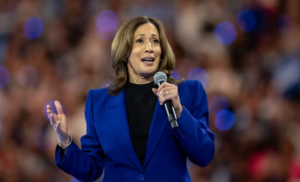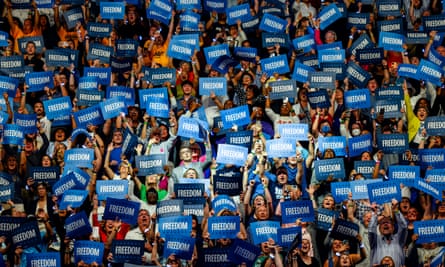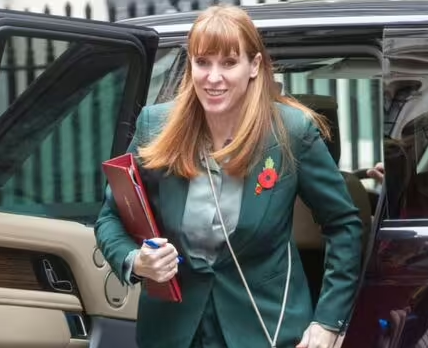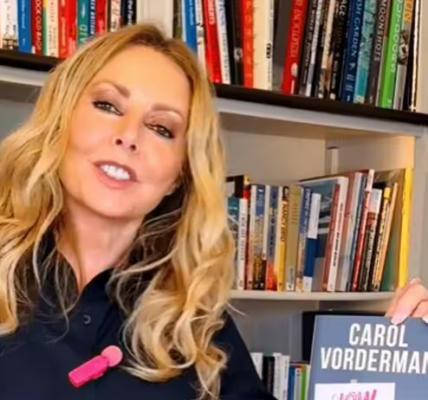Pennsylvania, Michigan and Wisconsin hold the election key – can the Democrats see off the challenge from Trump?

Away from the deafening roar of the party faithful that nightly fills the Democratic national convention in Chicago an urgent question is being asked behind the scenes: how can the party convert the energy that has exploded around Kamala Harris’s belated candidacy into actual votes on election day?
All eyes are on the “blue wall” states of Pennsylvania, Michigan and Wisconsin, where the identity of the 47th US president is likely to be settled. The outsized significance of the three states in the race is evident in the scramble of the presidential candidates to woo them.
Harris and her running mate Tim Walz took a cut from the convention on Tuesday to dash to Milwaukee, Wisconsin for a campaign rally – Harris’s third visit to the critical battleground state this month alone. The same day, Donald Trump sprinted to Livingstone county, Michigan, having paid his second visit to Pennsylvania on Monday in as many days.
At the convention, breakfast meetings staged by the local parties of the blue wall states have been bombarded by Democratic aristocracy, among them Walz, the governor of Minnesota chosen by Harris to be her running mate. He made a surprise visit to the Wisconsin and Pennsylvania breakfasts on Monday, telling them that his mission was to fight for “politics with a sense of dignity, with a sense of kindness, with a sense of joy”.
Under America’s arcane presidential system, the 44 electoral college votes commanded between the blue wall states have been what it took in recent presidential cycles to tip a candidate over the 270 votes to win the White House. These rust belt states were reliably Democratic until Trump and his narrative of the “forgotten man” broke through the wall in 2016, taking all three by the narrowest margins.
Joe Biden took them back in 2020. But their political allegiances remain fickle, and the 2024 election looks set once again to be coming down to the wire.
Recent polls from the New York Times-Siena College, as well as trackers from fivethirtyeight.com and realclearpolitics, all show Harris surging from Biden’s shaky standing before he stood aside. But her improved strength against Trump is still within the margin of error, and as Harry Enten
The good news for Harris is that the burst of excitement around her sudden emergence as nominee appears to be having an impact on the ground. In Wisconsin, which Biden won by barely 20,000 votes in 2020, more than 40,000 people have signed up as Democratic volunteers since the ticket switched to Harris.
Ben Wikler, chair of the Wisconsin Democratic party, told the Guardian that “every single metric that we can track is going up”. He noted that for each of the last six presidential races, the result in his state came down to less than one percentage point.
He said: “We have had more volunteers sign up since Kamala Harris became our nominee than the margin of victory in 2016 and 2020. Energy is through the roof, in every part of the state.”
The challenge facing Wikler, in common with other Democratic leaders across the rust belt, is as he puts it, “turning enthusiasm into work. There are millions of people who have barely begun to tune into this election, and they are the ones who might go either way or sit out election day – and having direct conversations with them is key.”
A half of all Wisconsinites live in communities of fewer than 15,000 people. To reach them, the party has developed an elaborate network over the past seven years based on neighbor-to-neighbor teams.
Reproductive rights are likely to feature heavily in the tussle for Wisconsin’s 10 electoral college votes. Surveys suggest that abortion is the top political issue for 15% of voters here, rising to 30% of Democrats.
For Wikler, such concern is not surprising – Wisconsin had a near total abortion ban for 451 days after the US supreme court overturned the right to an abortion. “So this is not academic,” he said.

In Michigan, which Biden won by 154,000 votes in 2020, 60,000 people have been registered to vote since the Harris’s propulsion to the nomination. Here, too, the party is attempting to maximise turnout in the big urban centers of Detroit and Flint, where the Democratic base is concentrated, as well as extend deeper into rural areas.
Garlin Gilchrist, the lieutenant governor of Michigan, said that the Harris campaign’s recent rollout of a new economic approach – billed as the “opportunity economy” – was a message that would fly in his state. “‘We’re going to bring down costs, we’re going to make drugs more affordable, we’re going to give you a pathway to purchase a home’ – that’s what people need to hear. It’s a message that says, ‘I’m with you.’”
In Michigan, however, Democratic organizers are also facing blowback from voters over Biden’s staunch support for Israel amid its retaliatory war with Hamas in Gaza, which has claimed more than 40,000 Palestinian lives. Dearborn is the largest city in the US with an Arab majority, with more than half of its 110,000 population with roots in the Middle East and North Africa.
More than 100,000 people voted “uncommitted” in Michigan’s Democratic primaries in February.
Gilchrist said he was heartened by a recent brief meeting between Harris and Walz and leaders of the uncommitted movement at a rally in Detroit. “There’s a willingness to build that relationship that is going to lead to figuring out how we can move forward together,” he said.
Meanwhile, in Pennsylvania, a state which Biden won by 80,555 votes in 2020, Democrats are looking to sustain the Harris enthusiasm wave through November.
Morgan Overton is vice-chair of the Democratic party in Allegheny county, Pennsylvania, which covers Pittsburgh and surrounding suburbs. With a population of 1.2 million, the city increasingly matches Philadelphia as critical in determining the outcome of presidential elections.
Overton said that she was consumed by the question of how to keep current energy levels elevated as what she called a “generational election” approaches. “I don’t want my future descendants looking back on this year and asking, ‘Why didn’t you do enough?’,” she said.




